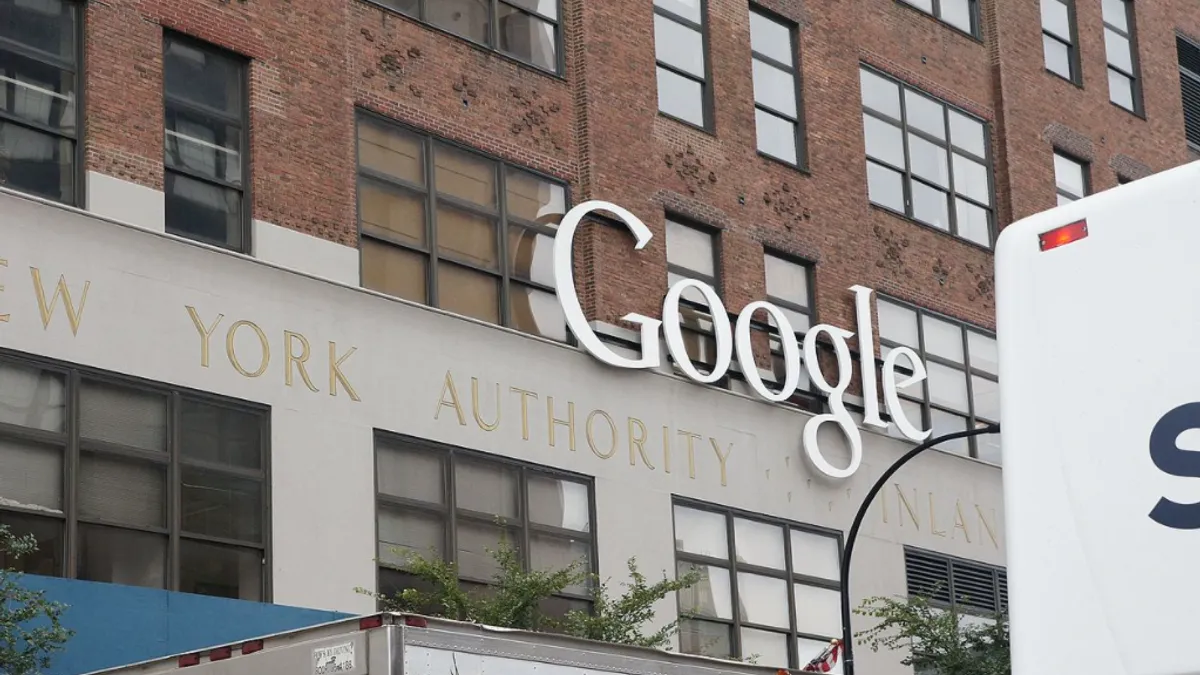When it comes to financial leadership in crisis, Ruth Porat has much more experience than most.
Porat, who has been CFO of Google’s parent company, Alphabet, since 2015, began her career at Morgan Stanley just weeks before the stock market crash of 1987.
During her 27-year career at the bank, she served a variety of leadership roles, including vice chairman of investment banking, global head of the financial institutions group, and co-head of technology investment banking.
She also advised several tech companies’ IPOs, including Google’s, and, according to Forbes, was “the chief architect behind the debt financing that saved Amazon from near-collapse during the dot-com crash in 2000.”
During the Great Recession, Porat led Morgan Stanley’s global coverage of financial institutions and governments, and advised the Treasury Department and the New York Federal Reserve Bank.
In the past twelve months, she has drawn on many lessons from the Great Recession to inform her approach.
This time last year, Porat told Yahoo Finance last week, she had already predicted the pandemic would be worse than the financial crisis, as it wasn’t just the economy in freefall, but the nation’s health.
Google was one of the first major companies to go fully remote, but nonetheless, it believes in-person work to be vital, and in September shared campus expansion plans in San Jose, California, which it hopes will foster a hybrid work model.
Porat’s initial concern was load balancing.
“If there's a problem in the Bay Area, you move to New York, or New York, you move to Dublin, Dublin you move to Bangalore,” she said. “But never was it contemplated that the entire world would shut down at one moment, in a two-week period of time. And so we immediately moved into crisis management.”
Keys to resilience
In that management, Porat drew on her experiences advising the Treasury and the Federal Reserve during the financial crisis.
One of her main lessons: in a crisis, you're only dealing with the “least worst” options. “There are no good options, so the most important thing is to act,” Porat said.
Another lesson: crises aren’t linear. “As the facts change and the data changes, you have to be nimble and ready to move, which really goes to one of the core points: the importance of the crisis response leadership team,” she said.
During the financial crisis, as well as in the past year, Porat returns to a phrase: lateral vision, which she defines as the ability to see around the globe, pick up new information where it crops up and “weave it together as though you’re weaving a tapestry.”
As for Google’s resilience, Porat cites the leadership team, which had worked through the ebola outbreak, Hurricane Katrina, and many other crises. “We really had the benefit of an extraordinary crisis response team,” she said.
Another important insight: during a crisis, a leader can never over-communicate.
“We viewed ourselves as having an incredible responsibility,” she said. “In a crisis, you don't have clarity about what comes next, but it's so important to make sure your team knows you're thinking of them and doing your best to present the information as you have it.”
Maintaining an ESG focus
Alongside Alphabet CEO Sundar Pichai, Porat has been vocal in her support for upping diversity, environmental and social government (ESG) standards within Google.
“We're putting all the elements in place [to] steadily grow a workforce that reflects the world around us,” she said. “And that's in everything from recruiting and promotion to all of the efforts that we do to support people throughout their careers. It's a journey, and one that is of the highest priority for us. We're continuing to work at it.”
“Society isn't where it needs to be,” Porat told Yahoo Finance when asked about women’s roles in tech and finance. “I'm most focused [on] accelerating opportunities for women at all levels; clearly, [that] starts with tone from the top.”
Porat and fellow female leaders “must put in place rigorous systems” to ensure female advancement.
“It's about recruiting; it's about equity; it's all of the unconscious bias work that's being done,” she said. “I think that neither are where they should be. Both are better than when I started.”
Earlier in her career, Porat ran technology equity capital markets at Morgan Stanley, which she called “kind of a hybrid with the trading floor, the most inhospitable part of a bank, and banking.”
At that time, a senior partner there called her into his office and said, “I think you're going to soar, but I just want you to know, I'm your senior air cover; I'm here to backstop you if you ever stumble.”
Since then, Porat has used the term “senior air cover” a lot, she said. “I think each one of us needs to have senior air cover, and we need to be senior air cover,” she said. “I think that's true in tech. It's true in finance. And I bet you it's true in every other industry, public and private sector.”
She became Morgan Stanley’s CFO in 2010.
“Because I was rising through the ranks at Morgan Stanley quite some time ago, there were no women in senior positions,” she said. “All of my senior air covers were men; you don't need someone to look like you to be your sponsor to help you get to that next level.”
At Google, Porat and her team are “trying to put in place every element so that we can, in 10 years, when we're having this conversation again, have a different answer.”
Investing in digital transformation
Porat is credited with Google’s fiscal discipline, Yahoo said. In her time as CFO, its stock has risen nearly 200%. She maintains a strict balance between the company’s project pursuits, such as its new campus, and its financial rigor.
“If you're not building strong, durable, quality growth, [your company] won't persist into the long-run,” she said.
When she considers which investments would support this kind of longevity at Google, Porat is currently settling on digital transformation, an acceleration of which the company is “clearly seeing.”
“You can see it in everything from the way commerce is conducted, to the way people consume content, the way we're doing our conversation today, and the way people are working generally,” Porat said. “I think many of us are finding a joy [and] productivity lift from that. And we think what was playing out over the next 10 years has really been telescoped in.”
Google wants to do “everything appropriate” to support its users, Porat said, and currently, that includes upping its digital infrastructure. “There's an opportunity there that is not just about 2021, but clearly a trajectory that persists beyond that.”
Another trend the pandemic has accelerated: enterprise customers moving to the cloud.
“It is an extraordinary opportunity,” Porat said. “We're seeing wonderful traction with all that our team is doing. And so we want to make sure we're investing at the right intensity to support that long-term growth.”
The top 3 questions
The investment and capital planning process, she said, raises three critical questions. The first concerns analytics: how can the company ensure it has long-term growth support?
The second: are we being vigorous and rigorous enough on stack-ranking within each area? Are we spending money needlessly in any area?
“Everybody has a bottom 10% or bottom some percent,” Porat said. “And you need to unlock those resources to have enough focus and financial intensity on the important things important.”
The third question: do we have operational excellence?
“Operational excellence is everything around privacy, trust and safety, and our computer capacity that enables us to deliver on the value proposition at the quality that we're talking about,” she said. “It goes back to durable, long-term growth. The objective is clearly to understand, what are the metrics along the way? What are the milestones along the way [where we] can assess progress?"





















